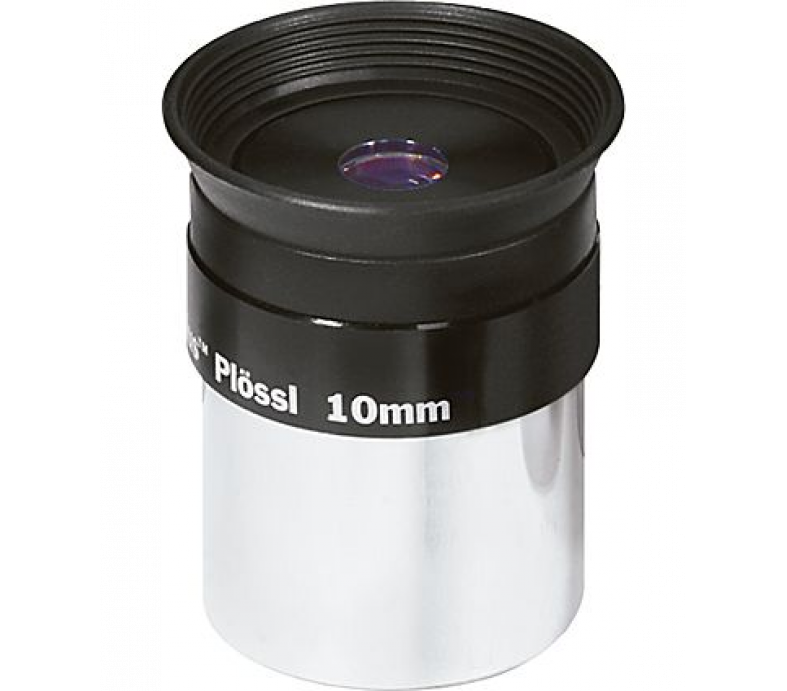Products
Orion 10mm Sirius Plossl Telescope Eyepiece 1.25"
- $120.56
- This 10mm focal length 1.25\" eyepiece is ideal for all types of telescopes: reflector, refractor, and catadioptrics such as Maksutov-Cassegrains (Mak-Cass)
- An excellent telescope ocular for higher-power planetary and lunar observation
- Offers a 52° apparent field of view for clear, sharp images of impressively high contrast
- Multi-coated for maximum light throughput
- Great for observing small planetary nebulas and globular star clusters
It\'s no surprise that the eyepieces in our Sirius Plossl line are our best-selling telescope eyepieces. Quality this good usually costs a lot more.
Offering a wide 52° apparent field of view, this 10mm Orion Sirius Plossl Telescope Eyepiece provides extremely sharp images of impressively high contrast. It\'s ideal for all types of telescopes: reflector, refractor, and catadioptric. The Plossl 4-element design is renowned for its outstanding performance, and has become the standard by which all other telescope eyepieces are judged.
The Sirius Plossl optical system is multi-coated for exc ellent light transmission and bright views. Lens edges are blackened to reduce scattering of stray light and maximize contrast.
The lenses are mounted in black-anodized aluminum housings with a 1.25\"-diameter chrome-plated brass barrel for durability and precision fit. The barrel is internally threaded to accept standard telescope filters. The built-in rubber eyeguard enhances viewing by helping to block out ambient light and position the eye.
This 10mm Orion Sirius Plossl Eyepiece is a great, moderately high power ocular for observing small planetary nebulas and globular star clusters, as well as for planetary probing when seeing conditions don\'t permit higher magnifications.
Specifications:-
- Design : Plossl
- Eyepiece focal length : 10.0mm
- Barrel size : 1.25\"
- Apparent field of view : 52.0°
- Eye relief : 6.5mm
- Coatings : Multi-coated
- Number of elements : 4
- Filter threads : Yes
- Parfocal : No
- Field stop diameter : 8.0mm
- Blackened lens edges : Yes
- Rubber eyeguards : Yes
- Body material : Aluminum
- Case : No
- Weight (oz.) : 2
- Dimensions : 1.5 in. x 1.3 in.


